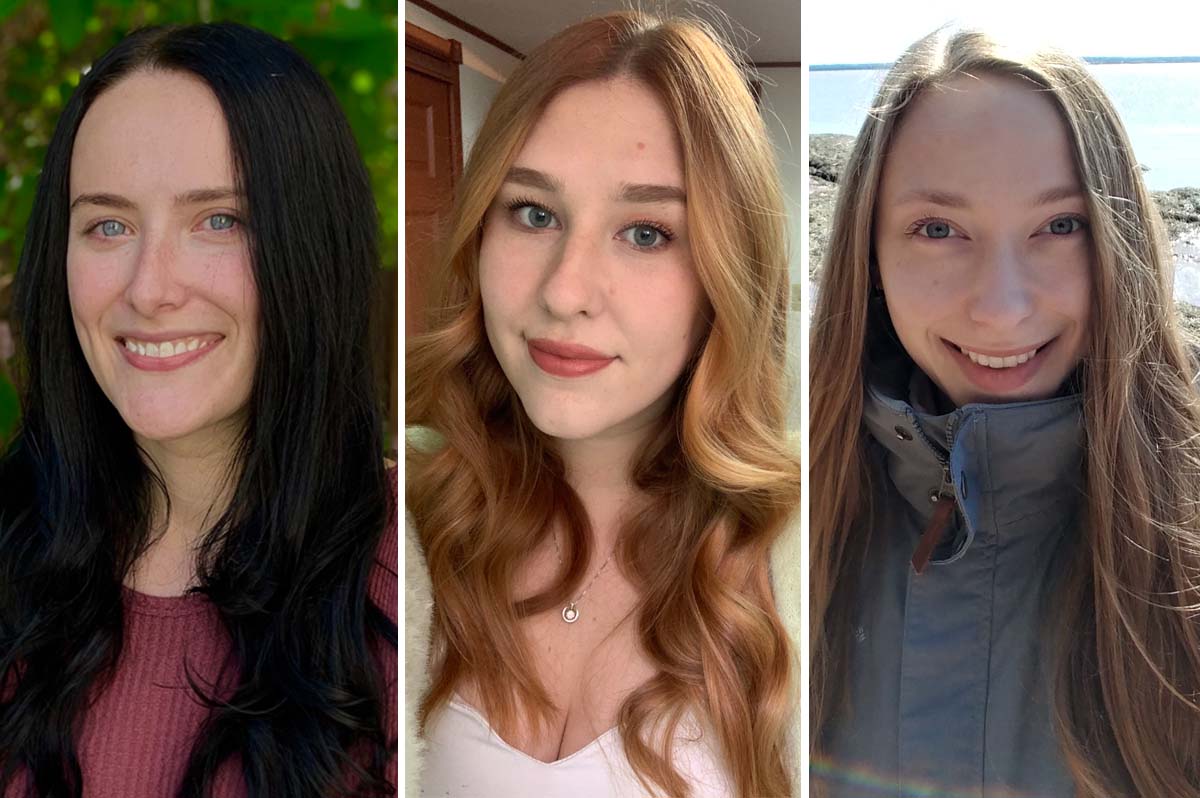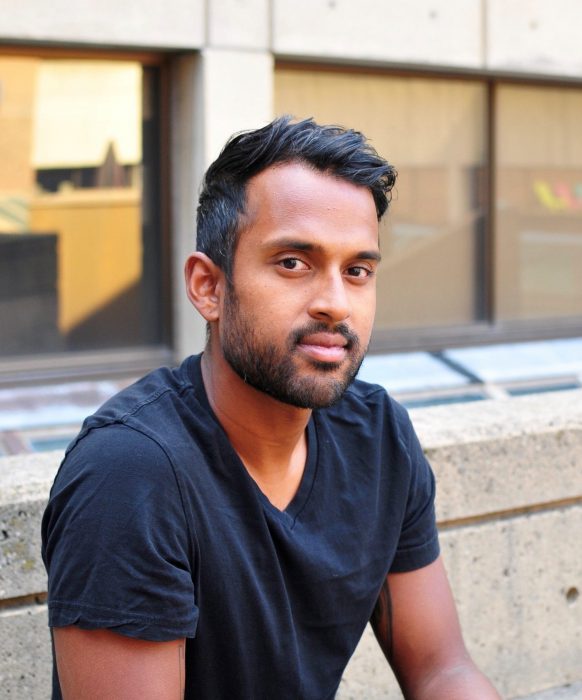
Kelsey Bertouille, Moneca Dunsford and Cassandra Roer were among three groups of occupational thrapy students presenting COVID-related projects at the 2021 Critical Inquiry Research Project Symposium.
COVID, innovation and frailty assessment among themes at OT symposium
Over 70 students, faculty, staff and community partners attended an all-day online symposium June 14 that showcased the research of second-year master of occupational therapy (MOT) students at the College of Rehabilitation Sciences, Rady Faculty of Health Sciences.
The 2021 Critical Inquiry Research Project Symposium featured 17 presentations from 47 students with topics ranging from financial services for people with chronic health conditions to the use of smart technology to assist people with disabilities.
This was the second year in a row the event was held online due to COVID-19. The pandemic also influenced the research itself, with projects looking at different aspects of its effects on caregivers, people with disabilities and students.
Kelsey Bertouille, Moneca Dunsford and Cassandra Roer presented their project that explored how rehabilitation therapists’ roles have adapted in response to COVID-19.
“The pandemic has been all-encompassing of everyone’s lives, especially in regards to the health-care system. As soon-to-be-new grads, we realized that these obstacles and barriers that are currently being experienced by rehabilitation therapists in primary care are likely going to continue, and we too will be navigating throughout the ever-changing restrictions and guidelines,” said Dunsford.
The group interviewed five rehabilitation therapists working in primary care in Manitoba and Ontario and found that their roles shifted both in relation to client need and pandemic restrictions for in-person care.
“This shift in the focus of their roles allowed them to become more proficient in meeting their clients’ needs through virtual service delivery methods,” Dunsford said.
Megan Peterson, Nikki Yaworski and Sarah Starodub’s project looked at the lived experiences of people with intellectual and developmental disabilities (IDD) during the pandemic. The group interviewed eight participants virtually, all of which were in Winnipeg and facing the same pandemic restrictions.
They found that people with IDD feel left out of pandemic planning, service changes, vaccination distribution and reopening of services.
“A lot of our participants were previously going to life skills programs and work vocation programs, so there was a disconnect between being at home and what they wanted to be doing. Their sense of being was affected too, which led to mental health concerns,” said Peterson.
Taryne Shinnimin and Kayla Hohl studied the lived experience of MOT students during the pandemic. The group invited 12 MOT students from the 2019, 2020 and 2021 academic years to participate in the study.
Shinnimin said that students’ mental health was largely impacted by the shift to virtual learning.
“Experiential learning was noted because OT is such a hands-on profession it was very difficult to learn online. Students felt they missed out on important learning and building skills. Students also expressed they did not feel as prepared for practice due to limited in-person and hands-on learning,” she said.

Dr. Robin Mazumder
The event also featured a keynote address by Dr. Robin Mazumder, a neuroscientist focused on urban environmental equity related to health and who completed his PhD at the University of Waterloo, on “pushing boundaries” in health care and social policy. The address was held in conjunction with the college’s Illuminate Speaker Series.
“I think our first priority should be reconciliation at every level. When it comes to pushing boundaries or innovating, I’m less interested in some cool technological innovation than I am in how we can start to move forward as a country and ensure Indigenous Peoples have what they need to live healthy lives,” Mazumder said.
Another highlight was an interactive session by Corrine Clyne, Lovejot Mann and Brenna Simonite on why the term “frailty” doesn’t fit in a First Nation perspective. The group explored the concept with Elder Margaret Lavallee and Knowledge Keeper Leslie Spillett from Ongomiizwin – Indigenous Institute of Health and Healing. They then broke the attendees into small groups to discuss how clinicians can better use frailty assessment tools to provide culturally relevant care.
The students said the Western medicine approach to frailty is inconsistent with strength-based Indigenous views.
“In relation to aging and health, people who are older and physically impaired that may be labelled as frail from a Western perspective are not viewed that way from a First Nations perspective. Aging is not looked at as a weakness, but rather Elders are honoured for their wisdom and power regardless of their physical abilities,” Simonite said.






